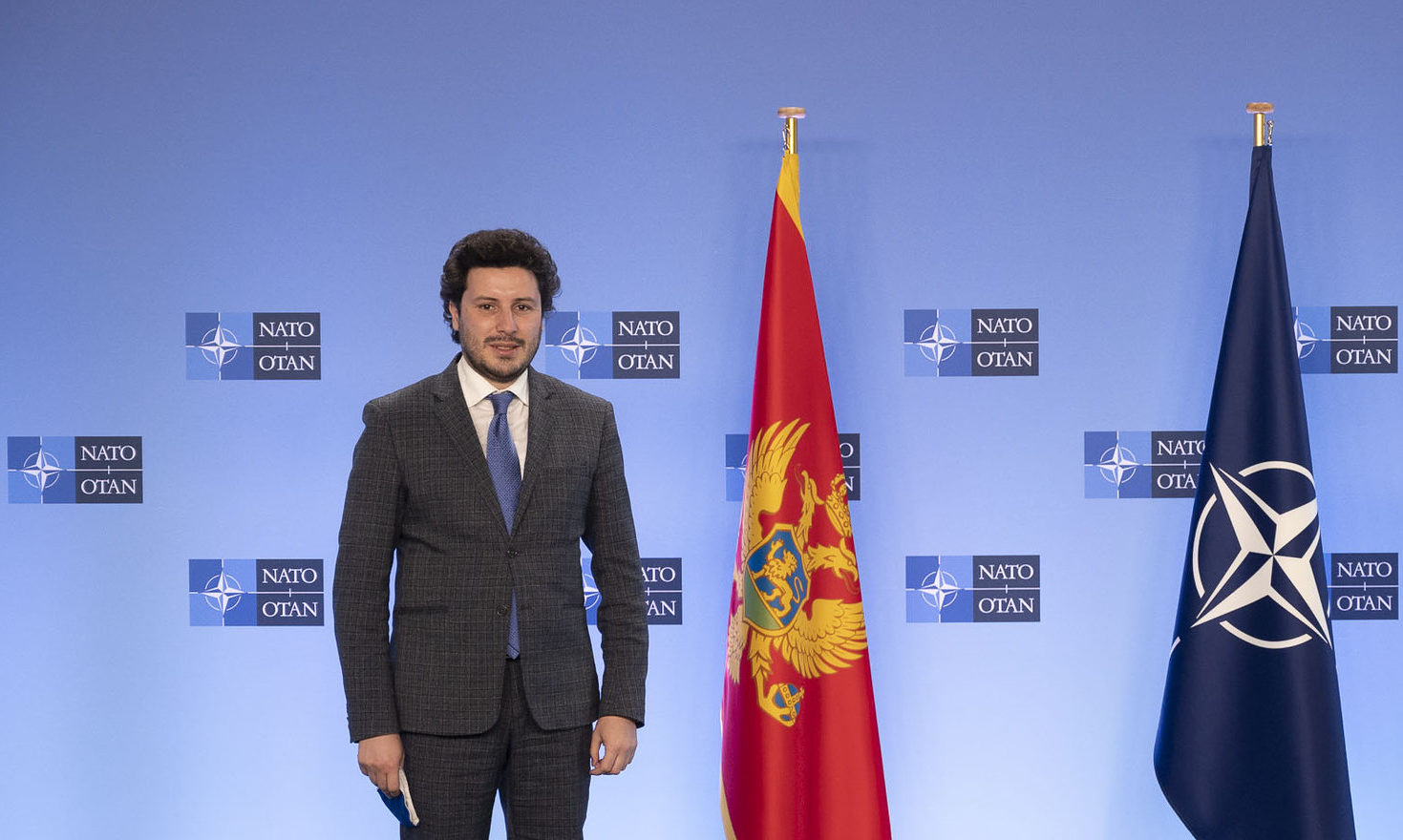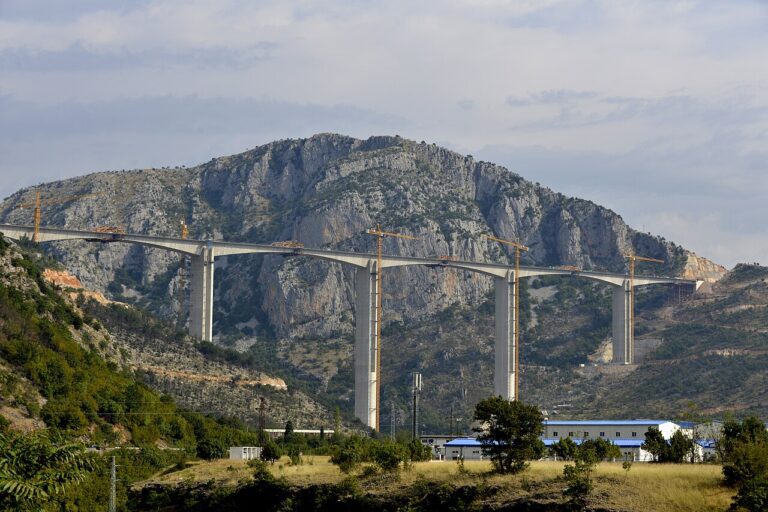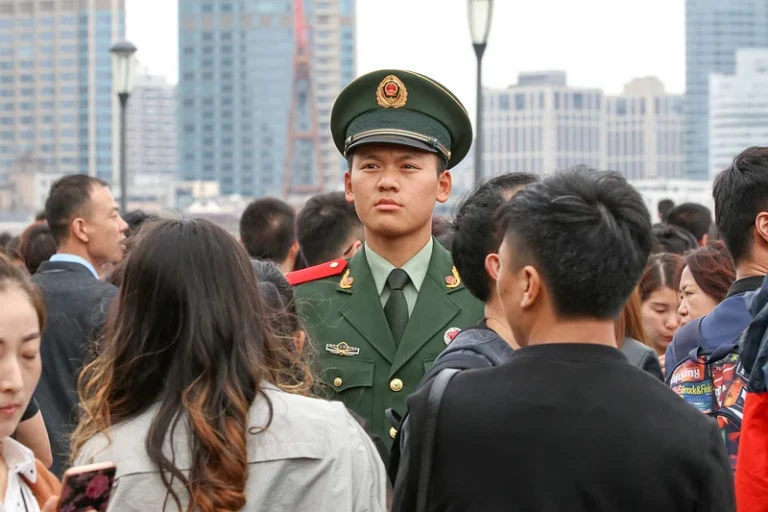Montenegro’s Growing Distance from China

This article is part of a series of articles authored by young, aspiring China scholars under the Future CHOICE initiative.
As Montenegro continues its westward turn in foreign policy, the erstwhile interest in expanding ties with China has dissipated, and not just because of the controversial highway.
The 30-year-long grip on Montenegro at the hands of the Democratic Party of Socialists (DPS) came to an end in late 2020, following the August elections. Throughout their rule, DPS and its leader, Milo Đukanović, enjoyed much support from the Western centers of power, despite organized crime allegations, large-scale corruption, nationalistic fervor, election fraud accusations, and other controversies.
DPS “stabilitocracy” was tolerated even when post-independence economic links with first Russia, and then China, intensified.
The most significant and internationally well-known example of the latter became the Bar-Boljare highway. This massive infrastructural project was supposed to cement DPS legitimacy both domestically and internationally, but, ironically, eventually aided its demise, compromising the stability of the Montenegrin economy in the process.
The arrival of the new, albeit short-lived government, led by Prime Minister Zdravko Krivokapić, marked the end of DPS domination and a start of a growingly distant Montenegro-China relationship.
From Close Ties to Alienation
In the years leading to the DPS regime collapse, there were numerous exchanges of official delegations between Podgorica and Beijing. Montenegro joined the 17+1 mechanism and the Belt and Road Initiative, the Montenegrin Embassy personnel expanded (an “economic desk” opened for the first time), a massive influx of Chinese (“secret”) Foreign Direct Investments was recorded in 2020, and the Confucius Institute at the University of Montenegro was opened.
Montenegro invested a lot in fostering its relations with China, which for a while appeared to flourish. However, results did not arrive as quickly or tangibly as the Montenegrin side expected. For example, in 2017, Beijing pledged to donate €2.65 million for the reconstruction of the Bridge on Đurđevića Tara – a centerpiece of the Yugoslav “Bridge” movie that was immensely popular in the 1970s China.
For years, nothing materialized, but on December 1, 2020, several days before the end of DPS’ term in office, a new agreement with Beijing was reached. This time, China pledged to donate €7.05 million, yet, the reconstruction still appears nowhere in sight.
Disillusioned with unrealized projects, the Krivokapić-led government likely saw less of a reliable partner in Beijing than their predecessors. In response, the government exhibited noticeably decreased interest towards developing ties with China. For example, the Montenegrin Embassy in Beijing has been operating with reduced staff and on the chargé d’affaires level for quite a while now.
But the shift in Podgorica’s attitude towards China became most strikingly evident in October 2021 when Montenegro, for the first time, signed the Joint Statement on the Human Rights Situation in Xinjiang at the UN General Assembly alongside 42 (mostly Western) countries. Such a decision was bound to alienate, if not outrage Beijing, and will remain a thorn in Montenegro-China relations in the long run.
The Highway Saga
The central controversy of Montenegro-China relations is, however, the Bar-Boljare highway. For years, local and foreign observers have been expressing concern over the unfavorable dollar-denominated loan from the Chinese EXIM bank (which increased significantly with currency rate fluctuations), incompleteness of agreements with the China Road and Bridge Corporation (CRBC) and the “highway to nowhere” claims, hiring of the DPS-linked BEMAX company as a subcontractor, tax benefits for the involved companies, and the environmental degradation of the Tara River.
Upon coming to power in late 2020, Krivokapić criticized the highway project on a number of occasions. His unfiltered frustration and dissatisfaction over construction delays, alleged lack of laborers’ work ethics, and the incompleteness of highway-related documentation, visibly strained relations with the Chinese Ambassador to Montenegro, Liu Jin.
One of Krivokapić’s more intense public critiques was made during their joint highway visit, in early December 2021. Allegedly, the Chinese ambassador left the scene without bidding farewell to Krivokapić. A knowledgeable source from the Montenegrin government confirmed that difficulties in the relationship between the country’s Prime Minister and China’s envoy existed since the beginning and that the Chinese ambassador rarely attended events organized by the Montenegrin leadership, citing the ongoing pandemic as the reason.
Yet, the most critical voice over the highway turned out to be the then Deputy Prime Minister, Dritan Abazović. At the European Parliament’s Committee on Foreign Affairs (AFET) in March 2021, Abazović called on the EU to “stop Chinese influences” in Montenegro and help Podgorica solve its debt crisis with Beijing. His statement appeared as a “spontaneous gaffe” and an unexpected 180-degree shift from a milder, more cooperative tone expressed on China in December 2020.
Abazović’s AFET address played right into Western fears of China’s geopolitical ambitions and so-called debt trap diplomacy – which Beijing continuously denied – and yielded results shortly after. Several Western banks assisted Montenegro in swapping its debt from dollars to euros, reducing the risk of currency fluctuation and decreasing the interest rate of its China loan from 2 percent to 0.88 percent. Though the hedging agreement gave Montenegro a feasible way out, no Western allies confirmed direct involvement in the matter but still praised the resolution.
Causing a diplomatic stir with his speech, Abazović clarified that full responsibility for the Montenegrin highway-related debt lies with DPS and not China, leaving some maneuvering space for damage control with Beijing. His firm EU focus and affiliation with the Greens expectedly meant that he would favor stronger Montenegro-EU ties. At AFET, however, Abazović demonstrated that such commitment should be reciprocal, voicing more need for EU support of Montenegro. Abazović’s actions were thus both ideological and politically pragmatic.
Unidirectionally Westward
On February 4, 2022, to “unblock” Montenegro’s “European path,” Abazović and his supporters (now including his former rival DPS), pushed for a no-confidence vote of the Krivokapić-led government. Not long after, with the Russian invasion of Ukraine, Abazović immediately condemned Russia’s political elites and reaffirmed Montenegro’s allegiance with its Western partners. More importantly, he delivered sanctions on Russia that the Krivokapić government declaratively announced on March 1 but failed to go through with. Exploiting momentum, he also lobbied for faster accession of Montenegro to the EU. Finally, after much political tug-of-war, on April 28 Abazović became Montenegro’s new Prime Minister, after forming a minority government whose foreign policy priority is unidirectionally Westward.
As recent events lead to a palpable resurrection of Cold War binaries, China is slipping into local political indifference despite remaining one of the main powers in the region. Montenegro’s growingly disinterested attitude towards China is yet to yield consequences, and a significant rapprochement with Beijing is not to be expected.
If the past two years have anything to show, it is that Montenegro-China relations are a self-fulfilling prophecy. The former’s often undiplomatic and impatient attitude towards China has unsurprisingly caused Beijing to halt and reevaluate previous openness to Podgorica, which in turn reaffirms and justifies Montenegro’s Westward resolve. It would not come as a surprise if the construction of the remaining highway sections is delegated to a non-Chinese company.
Thus, as Podgorica turns decidedly Westward and Beijing grows reticent, Sino-Montenegrin relations enter a new era of mutual indifference.
At our request for a comment, Prime Minister Dritan Abazović did not respond.
Written by
Jovana Bogojević
Jovana Bogojević is a doctoral candidate in Asian and Transcultural Studies in a joint Ph.D. program of the Ca’ Foscari University of Venice (Italy) and Heidelberg Universität (Germany). Her research project focuses on the Yugoslav perceptions of and political actions towards four East Asian countries (China, Japan, North Korea, and Mongolia) in the early Cold War era. Jovana was formerly a Yenching Scholar at Peking University and is a trained musician.


